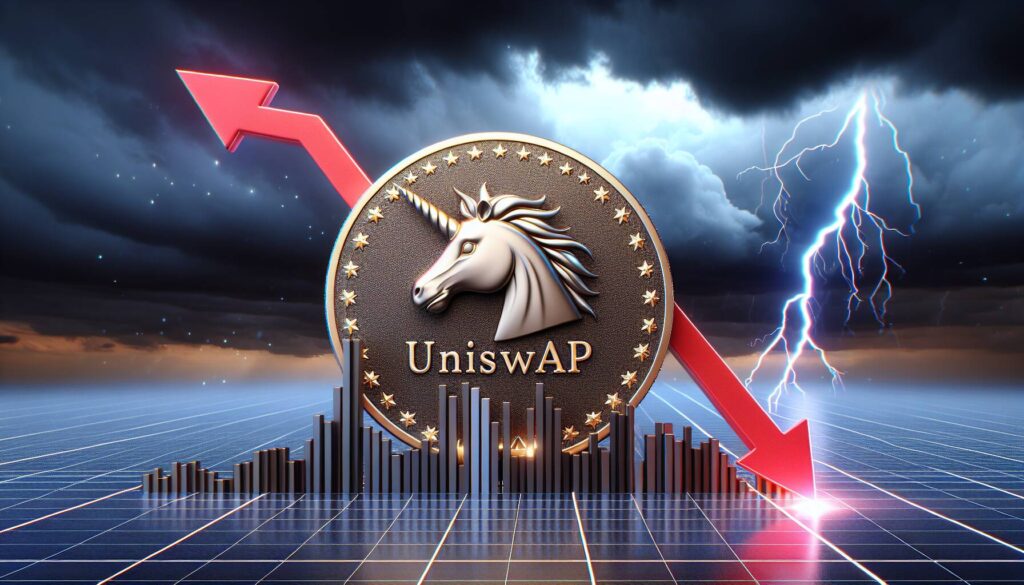The U.S. cryptocurrency landscape is facing a significant political spotlight as an investigation unfolds within the House of Representatives, along with a planned Senate hearing aimed at addressing allegations of “debanking.” This term, synonymous with the systemic removal of crypto entities from the traditional banking system, has been linked to the actions of financial regulators during the Biden administration. Senate Banking Committee Chair Tim Scott has been vocal about these concerns, asserting that “debanking is un-American” and urging equitable treatment for all legal businesses, irrespective of their political affiliations.
Operation Chokepoint 2.0, a phrase coined by Republican lawmakers and industry representatives, draws parallels to a historical initiative intended to manage risk in banking by distancing institutions from certain high-risk sectors. This new wave of scrutiny focuses on whether financial institutions were pressured by government regulators to sever ties with digital asset firms, a concern echoed by House Oversight Committee Chairman James Comer. His committee is actively investigating the roots of this debanking trend, seeking clarity on whether it stems from financial institutions themselves or from direct or indirect governmental influences.
“We are grateful to assist in the thorough investigation of this pernicious practice,” said Kristin Smith, CEO of the Blockchain Association.
Amidst these inquiries, the cryptocurrency sector finds itself grappling with a challenging regulatory environment that some allege has fostered uncertainty and conflict. Notably, while regulators like the Federal Deposit Insurance Corp. have issued guidance that places significant restrictions on banks engaging with crypto businesses, the motivations behind banks opting out of these relationships remain complex. Many financial institutions might also be deciding to avoid crypto based on their own risk assessments or strategic objectives.
Additionally, congressional Democrats are launching their own inquiries into the realm of cryptocurrency, specifically focusing on the recently introduced meme coin associated with former President Donald Trump, denoted as $TRUMP. Allegations suggest that this coin could implicate potential conflicts of interest stemming from Trump’s use of the presidency to gain financially. The unfolding dynamics between lawmakers, regulators, and the cryptocurrency industry continue to evolve, capturing the attention of both the political arena and financial observers alike.

Investigation into Crypto Debanking Practices
The ongoing investigations in the U.S. Congress into the alleged debanking practices affecting the cryptocurrency industry could have significant implications for businesses and individuals involved in this sector.
- Operation Chokepoint 2.0:
- Refers to systemic severing of crypto industry members from U.S. banking services.
- Criticized as an abuse of authority by Biden’s financial regulators.
- Senate Banking Committee Hearing:
- Scheduled for February 5, addressing whether financial institutions were pressured to cut ties with crypto firms.
- Chairman Tim Scott emphasizes that all legal businesses deserve fair banking access.
- House Oversight Committee Investigation:
- Investigating the origins of the debanking practice—whether it’s from the government or financial institutions’ decisions.
- Specifically targeting communications with major crypto firms such as Coinbase and Uniswap Labs.
- Potential Impacts on Crypto Businesses:
- Access to banking services is crucial for the operation of crypto businesses and maintaining liquidity.
- Financial institutions may hesitate to engage with crypto, fearing regulator backlash, thus limiting opportunities.
- Political Ramifications:
- Potential tension between political parties, as Democrats investigate issues surrounding former President Trump’s meme coin.
- This focus on cryptocurrency could lead to more stringent regulations affecting the entire market.
“Debanking is un-American — every legal business deserves to be treated the same regardless of their political beliefs.” – Tim Scott
Investigating Debanking: A Deeper Dive into the Crypto Struggle
The ongoing investigation by the U.S. House of Representatives and a hearing in the Senate regarding the alleged debanking of crypto industry leaders during the Biden administration raises significant questions about regulatory practices. This situation, informed by the concept of “Operation Chokepoint 2.0,” highlights broader discussions around the treatment of digital asset firms within the banking ecosystem. Republican lawmakers are taking a strong stance, with Senate Banking Committee Chair Tim Scott asserting that cutting off access to banking services based on political affiliations or industry participation is inherently unjust.
Competitive Advantages: This investigation offers a platform for the crypto industry to argue against what they perceive as unfair practices that could stifle innovation. It may strengthen the hand of digital asset firms as they advocate for equitable access to banking services, presenting a united front against perceived government overreach. By drawing attention to issues of fairness and free market principles, there’s potential for gaining public sympathy and political support from advocates of free enterprise.
Competitive Disadvantages: However, the complexities of the regulatory landscape mean that not all financial institutions are solely driven by government pressure. Some banks might be acting independently based on risk assessments and their business models. This mixed narrative could lead to a dilution of the intended message from crypto advocates, potentially alienating stakeholders who prioritize risk management and regulatory compliance. Furthermore, emerging scrutiny of figures like Donald Trump over potential financial conflicts linked to meme coins could negatively affect the industry’s credibility as it parallels existing debates on regulatory oversight and accountability.
This ongoing saga could create benefits for various stakeholders, including those within the crypto space who seek resolution and clearer guidelines, as well as financial institutions eager to align with a burgeoning market amidst regulatory clarity. However, it also presents challenges for regulators and financial institutions that must navigate the dichotomy of fostering innovation while enforcing necessary safeguards. In the end, the outcome of this inquiry may significantly impact how both digital asset businesses and traditional banking institutions strategize for the future, balancing risk and opportunity in an evolving financial landscape.
















